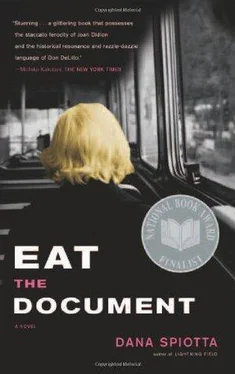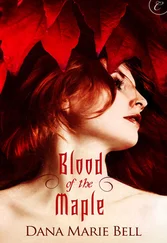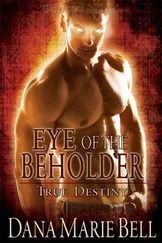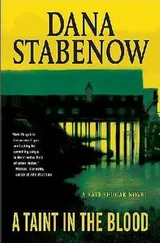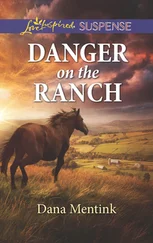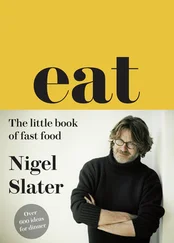Dana Spiotta - Eat the Document
Здесь есть возможность читать онлайн «Dana Spiotta - Eat the Document» весь текст электронной книги совершенно бесплатно (целиком полную версию без сокращений). В некоторых случаях можно слушать аудио, скачать через торрент в формате fb2 и присутствует краткое содержание. Год выпуска: 2006, Издательство: Scribner, Жанр: Современная проза, на английском языке. Описание произведения, (предисловие) а так же отзывы посетителей доступны на портале библиотеки ЛибКат.
- Название:Eat the Document
- Автор:
- Издательство:Scribner
- Жанр:
- Год:2006
- ISBN:нет данных
- Рейтинг книги:3 / 5. Голосов: 1
-
Избранное:Добавить в избранное
- Отзывы:
-
Ваша оценка:
- 60
- 1
- 2
- 3
- 4
- 5
Eat the Document: краткое содержание, описание и аннотация
Предлагаем к чтению аннотацию, описание, краткое содержание или предисловие (зависит от того, что написал сам автор книги «Eat the Document»). Если вы не нашли необходимую информацию о книге — напишите в комментариях, мы постараемся отыскать её.
shifts between the underground movement of the 1970s and the echoes and consequences of that movement in the 1990s. A National Book Award finalist,
is a riveting portrait of two eras and one of the most provocative and compelling novels of recent years.
Eat the Document — читать онлайн бесплатно полную книгу (весь текст) целиком
Ниже представлен текст книги, разбитый по страницам. Система сохранения места последней прочитанной страницы, позволяет с удобством читать онлайн бесплатно книгу «Eat the Document», без необходимости каждый раз заново искать на чём Вы остановились. Поставьте закладку, и сможете в любой момент перейти на страницу, на которой закончили чтение.
Интервал:
Закладка:
He did however start writing notes and pasting them throughout the stacks and shelves. Especially in the areas he couldn’t see that easily.
We are not a corporate chain—
please don’t steal from us!
or
If you steal from us we will cease to exist.
even as bad as
Prairie Fire is not the “man,” so why are you stealing?
and
Petty thievery is not subversive, it is just petty.
Henry — and after all he was the owner of the place, the man whose dime was on the line, Nash respected that — saw the problem as one of enforcement. If Nash would just bust one of these kids, they would stop. Nash conceded that Henry might be right about that. Word was out that they didn’t bust anyone.
“The notes just remind them that stealing is an option. Hey, I should buy this, and then they see this note asking them to cut out stealing, and they think, Oh yeah, people steal. I forgot about that, that’s a good idea.”
“Punk city,” Nash said. “Have you noticed they all use that word again, punk . And punk rock . But it seems to mean generally rebellious rather than specifically 1977. As in ‘You closed down traffic on I-5 during rush hour? Punk rock.’ Although they tend to say it in a sneering tone, so perhaps it is sort of ironic. Or both, everything is both earnest and ironic at the same time with them. Which is either a total dodge or some attempt at a new way to be.”
“Those signs just don’t work,” Henry said.
“But they would never use city as an intensifying suffix. Not yet, that is. But it will be back eventually, in some mangled retread. Count on it.”
“But I leave it entirely up to you,” Henry said.
They were having their nightly beer after the store closed. Or, more accurately, beers, as Henry would consume five to Nash’s one. Henry, bottle in hand, wandered through the store laughing at Nash’s signs.
“But I still think that as we gradually make them feel it is their space, as more of them work here, they will respect that.”
“Or you could just bust one of them,” Henry said.
“Where do you stop? How much energy do you give it? Then you end up in lockdown. Beepers and cameras, mirrors and cops. Seizures and searches.”
“You’re exaggerating.”
“Charges. Pressed charges.”
“Okay, do it your way. The whole point—”
“Affidavits. Attorneys.”
“—of the place is not—”
“To cede yet another part of our lives to over-ordinance and constant surveillance.”
Henry finished another beer in a long swig. He tossed the bottle in the recycling bin, where it clanked against the others. His face stretched into a painful-looking horizontal grimace that Nash understood to be Henry’s smile. He always had razor stubble along his cheeks and dark circles under his eyes. And he chain-smoked unfiltered Camels, which enhanced a rather nasty asthmalike illness. Nash watched as Henry downed beer after beer, only hesitating at the last beer in the six-pack, which he would unfailingly offer to Nash, and Nash would decline politely, and Henry would shrug and grab it.
Neither Nash nor anyone else who really knew him would likely describe his life as particularly golden, not in the larger sense anyway, but in small ways Nash felt he would have to say it was lucky. Truly. Luck with people, friends — he was lucky with guys like Henry. Nash first met him at the bartending job Nash had taken to pay the bills. Prior to that he worked small-time construction jobs, but as a late-forty, he couldn’t take it anymore. Or his body couldn’t anyway.
Nash was a lousy bartender. He didn’t know how to make many drinks, he wasn’t fast, and he gave drinks away (every other drink was a buyback if you looked like you needed it). But this particular bartending job mostly required a stoic ability to deal with drunks for twelve hours straight and not get drunk yourself. The clientele were clichéd lonely, older working men with cumulative, functional-but-chronic drinking habits. And occasionally the younger nonworking locals that liked to slum in dive bars. They ordered drinks and then smiled and whispered to each other, gesturing. They constantly telegraphed that they were there for a laugh only, as if getting older was contagious. Nash tolerated all of it, he occupied himself with wiping and polishing— tending the bar —as he listened.
Henry was one of Nash’s regulars. He was one of those wiry, slight guys who could drink endlessly and never hesitate when he finally stood, never seem surprised by the sudden hardness of the ground beneath his feet. He did have bad days, though, days when he had that jumpy, look-over-your-shoulder habit. But Nash immediately liked him. They were about the same age, which for some reason seemed important. At the end of the night, or toward the end of the night, Nash would pour himself a beer or a drink and come around the bar and sit on a stool, and Henry would tell Nash stories about growing up in this neighborhood, what had changed and what hadn’t. He told good stories, and he didn’t repeat himself, both rarities in the drunk crowd. Henry did sometimes sweat a lot, but he never, ever slurred his words. Nash heard rumors from the other regulars that Henry had been an Army Ranger and seen combat. Or maybe it was the Marines, or the Air Force. Others said he had been in prison. It was obvious Henry had been through something, but Henry never told Nash anything about that. What was clear was that Henry had lost hearing in one of his ears. Nash noticed that he frequently said What? in an irritated voice if Nash had the radio or TV on. Whenever Henry came in, Nash turned the background noise way down or off. He didn’t make a fuss about doing it, and Henry certainly never asked for it, but that was how their rapport began.
Eventually Henry invited Nash to get high with him. It was closing time, and after locking up they walked around the corner to Nash’s apartment.
He lived on the top floor of a small house. The old woman who owned the place lived downstairs and never raised the rent once in eight years. Nash felt that was being lucky in small ways. Henry followed him up the back stairs to the entrance door on the second-story porch. He was winded by the climb and waved Nash off as he caught his breath. From the back door and windows the distant downtown of the city gleamed and twinkled. During the day Nash could easily see the Sound and even the jagged, painterly Cascade Mountains beyond like a two-dimensional backdrop, so pretty they looked artificial to him and not pretty at all. He didn’t really believe in them. He would catch a glimpse of them on clear days and then shake his head and mutter, “Yeah, sure. Ha.”
“Do you own this place?” Henry asked when he stopped gasping from the stair climb. “I get these breathing irregularities at unpredictable times. More to do with anxiety than lungs.” Breath. “I guess.”
“No. I just rent it.” Nash turned on the light. He rarely had guests, and only now did it occur to him that his apartment had a college feel to it, peculiar in a man his age: a secondhand couch with a blanket slipcover, a recycled industrial wire spindle turned on its side for a coffee table, a stereo (an actual vintage hi-fi turntable) with stacks of LPs at its side. Books strewn everywhere. Books in shelves made of crates and actual carpenter-made shelves, and more books doubled in front. Books shoved sideways on top of the books on the shelves. The room had no decoration except an oversized Persian-style area rug. And against one wall, lined up on several built-in shelves, was a collection of broken things: a series of vintage plastic objects, not so much a plate or a radio but a piece of something, a curve, a handle, a corner. They were that old imitation ivory with faded, prefab, fake imperfections — more beautiful older and faded, even cracked. Nash knew everything about them: they were urea resins, or acrylic, or phenolic molding masses. Co- or homopolymers. They were called made-up words with futuristic, hybrid, exotic formations: melamine, Bakelite, celluloid. They were resiny yellows with strands of darker color to evoke tortoise, or they were unnatural blow-molded reds and greens, meant to evoke nothing in nature. They had curves that went nowhere, and Nash found them all in junk shops and dumps, garbage bins and giveaway boxes at yard sales. He was not a collector, but he felt drawn to these plastic remnants. He liked looking at them, touching them, smelling them. (All of them still emitted odd, vintage toxins that you could detect, faintly, if you pushed the piece right against a nostril and inhaled. The odor reminded Nash of their slow evaporation into the air, of how they would disappear after a thousand years of low vapor emittance, and of their true plasticity, unstable and variable.) But of course to the guest visiting the chances were that these industrial relics — these detrital treasures — looked like, well, garbage.
Читать дальшеИнтервал:
Закладка:
Похожие книги на «Eat the Document»
Представляем Вашему вниманию похожие книги на «Eat the Document» списком для выбора. Мы отобрали схожую по названию и смыслу литературу в надежде предоставить читателям больше вариантов отыскать новые, интересные, ещё непрочитанные произведения.
Обсуждение, отзывы о книге «Eat the Document» и просто собственные мнения читателей. Оставьте ваши комментарии, напишите, что Вы думаете о произведении, его смысле или главных героях. Укажите что конкретно понравилось, а что нет, и почему Вы так считаете.
